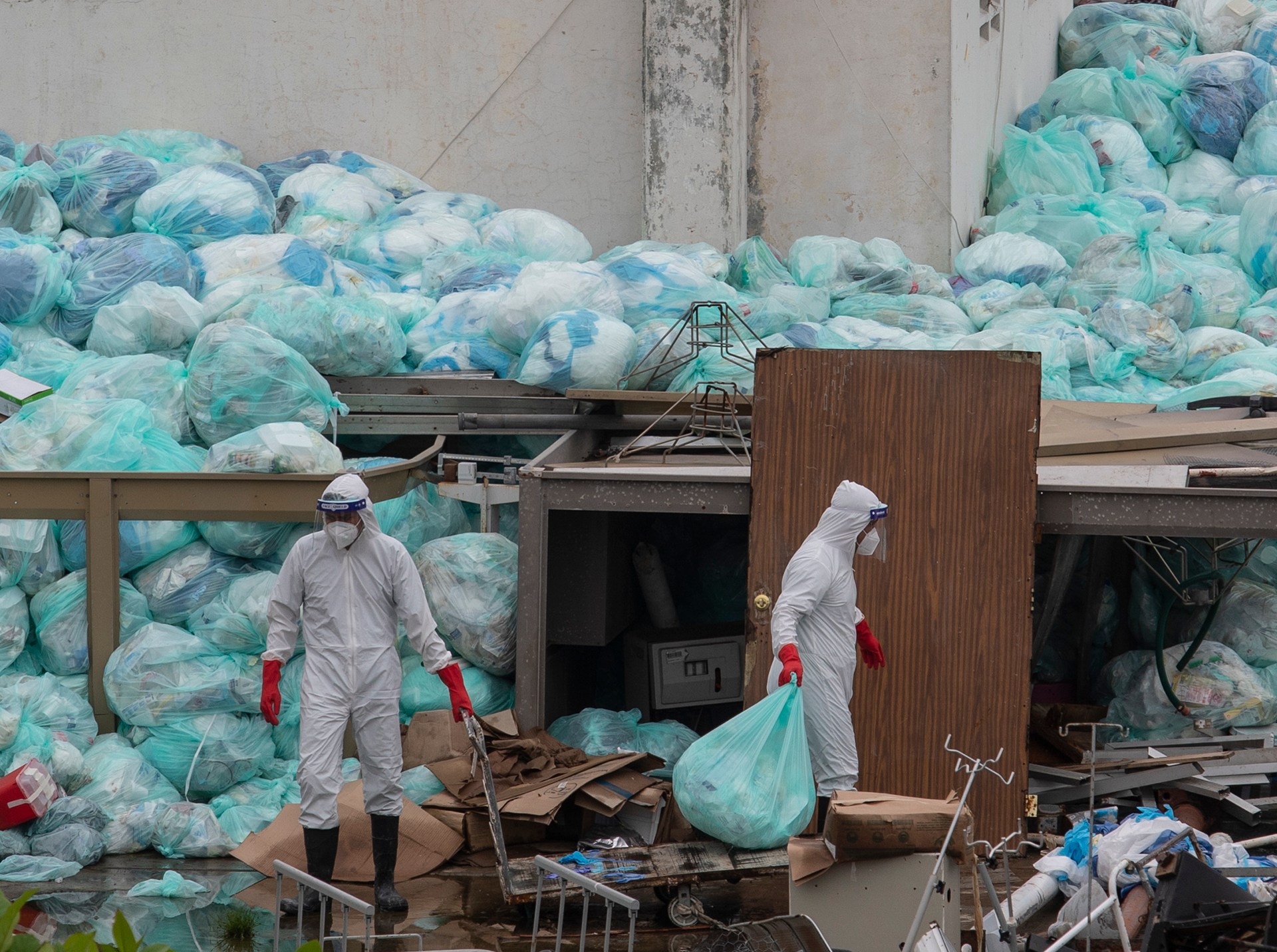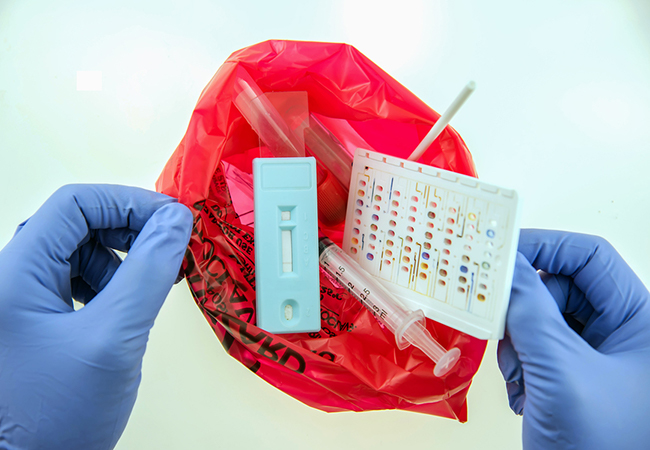Comfort at Your Doorstep: Situating Reliable Medical Waste Removal Near Me
Comfort at Your Doorstep: Situating Reliable Medical Waste Removal Near Me
Blog Article
Checking Out Various Waste Disposal Options for a Cleanser Atmosphere
In the quest of a cleaner atmosphere, the administration of garbage disposal has actually arised as an essential focal point for sustainable advancement. With a plethora of garbage disposal choices available, ranging from standard land fill methods to innovative waste-to-energy modern technologies, the option of just how we handle our waste has significant ramifications for our earth's wellness. By examining the different techniques and strategies utilized in reusing, composting, incineration, land fill administration, and waste-to-energy procedures, a much deeper understanding of their impacts and efficiency can be gained. The pursuit for ideal waste disposal methods that focus on ecological conservation while fulfilling the needs of a growing population continues to be a pressing problem in today's globe.
Recycling Techniques
Applying efficient reusing techniques is important in minimizing waste and promoting sustainability in our atmosphere. Recycling includes the process of converting waste materials right into multiple-use items to protect against unnecessary disposal.
Another crucial recycling method is composting, which entails breaking down natural waste like food scraps and yard trimmings into nutrient-rich soil. This process not just diverts natural waste from garbage dumps however additionally creates a valuable source for horticulture and farming. In addition, upcycling is an imaginative recycling technique that includes changing old or disposed of products into items of better or value. By integrating these various recycling approaches into our waste management practices, we can dramatically decrease our environmental footprint and move in the direction of a more sustainable future.

Composting Techniques
Efficient waste monitoring methods, such as reusing methods, pave the method for a cleaner setting, and now, moving the focus to 'Composting Techniques', we discover sustainable methods to disintegrate organic waste for environmental advantage. medical waste disposal.
Composting is an all-natural process that changes natural waste, like food scraps and lawn trimmings, into a nutrient-rich soil change. The trick to successful composting lies in creating the best equilibrium of environment-friendly products, such as vegetables and fruit scraps, and brownish products, like dried out fallen leaves and twigs. These materials decay with the aid of microorganisms, damaging down the waste right into valuable garden compost.
There are different composting techniques readily available to suit various requirements. Typical backyard composting includes layering organic products in a bin or heap and on a regular basis turning the combination to aerate it. Vermicomposting, on the various other hand, utilizes worms to damage down natural issue into compost (click here). For those with limited space, interior composting systems provide a hassle-free service. By making use of composting techniques, we can reduce the amount of waste sent to landfills while developing a useful item for enhancing soil and sustaining plant growth.
Incineration Advantages And Disadvantages
Incineration, as a waste disposal technique, presents both benefits and negative aspects that merit mindful consideration in the world of lasting waste monitoring practices. On the favorable side, incineration can significantly minimize the volume of waste, decreasing the requirement for garbage dump space and potentially reducing greenhouse gas exhausts.
Nevertheless, there are notable drawbacks to incineration. One significant problem is the possible launch of harmful pollutants right into the air, such as dioxins, hefty metals, and particle matter, which can have negative impacts on human health and the setting. Additionally, the high initial financial investment and operational expenses of incineration facilities present economic challenges, making it a less cost-efficient alternative compared to other waste management approaches. Careful tracking and policy are vital to alleviate these unfavorable impacts and make the most of the benefits of incineration as part of a thorough waste management technique.
Garbage Dump Administration Approaches
Garbage dumps play a critical role in waste monitoring and environmental preservation by offering a control system for the disposal of solid waste materials. Effective landfill administration methods are essential to alleviate environmental influences and make certain the long-lasting sustainability of these garbage disposal websites. One vital method appertains waste compaction to maximize making use of available room within the garbage dump (click here). By compacting the waste, the quantity is reduced, permitting more waste to be suited gradually.
Furthermore, the execution of daily cover techniques is vital in minimizing smells, stopping clutter, and lowering the tourist attraction of insects. Treatment the disposed waste at the end of daily assists to contain odors and avoid potential environmental contamination. Additionally, the monitoring of garbage dump gas emissions and leachate levels is essential in guaranteeing that ecological requirements are satisfied and that any type of possible threats to bordering environments are lessened.

Waste-to-Energy Technologies
Among the innovative approaches to lose management entails using Waste-to-Energy technologies to convert solid waste into functional power resources. Waste-to-Energy (WtE) technologies include a variety of procedures that aim to remove energy from waste products through thermal, chemical, or organic ways. This conversion process not just reduces the quantity of waste that winds up in land fills yet also creates important power sources such as electricity, warm, or biofuels.
There are several techniques of Waste-to-Energy conversion, consisting of incineration, pyrolysis, and gasification. Incineration entails melting waste at heats to produce warmth and electrical energy. Gasification transforms waste into a syngas, which can be made use of for power generation or chemical production. Pyrolysis breaks down organic products utilizing high temperatures in the lack of oxygen, creating bio-oil, char, and gas.
Carrying out Waste-to-Energy modern technologies can aid alleviate ecological issues related to standard waste disposal approaches while concurrently providing a renewable resource resource. Cautious consideration has to be provided to discharges control and guaranteeing the sustainability of feedstock products for these technologies to be genuinely useful for a cleaner setting.

Final Thought
In verdict, discovering various waste disposal options such as recycling, composting, incineration, garbage dump monitoring, and waste-to-energy technologies is essential for advertising a cleaner environment - click here. Each method has its own advantages and obstacles, yet by using a combination of these methods, we can work in the direction of lowering the quantity of waste that ends up in land fills and ultimately add to an extra sustainable future for generations to come
With a plethora of waste disposal imp source choices available, ranging from traditional garbage dump approaches to ingenious waste-to-energy technologies, the choice of just how we handle our waste has significant implications for our world's well-being. medical waste disposal.Incineration, as a waste disposal approach, offers both benefits and disadvantages that merit cautious consideration in the realm of sustainable waste administration methods.Landfills play an important role in waste management and ecological conservation by providing a control system for the disposal of solid waste materials. By condensing the waste, the volume is lowered, allowing for more waste to be accommodated over time
One of the innovative strategies to throw away monitoring includes taking advantage of Waste-to-Energy innovations to transform solid waste right into useful energy sources.
Report this page